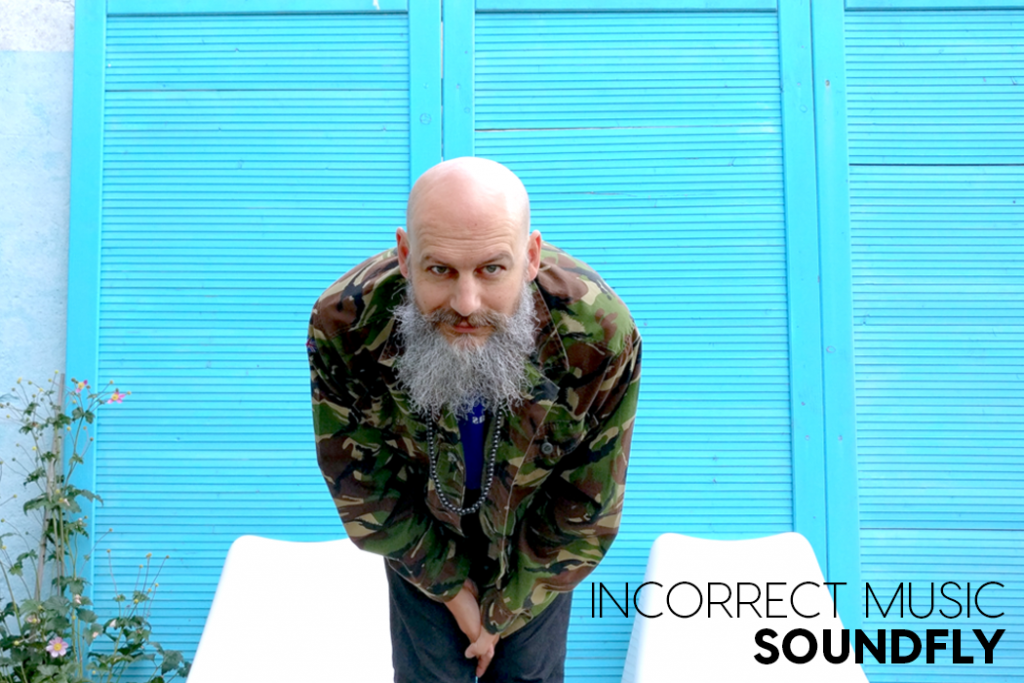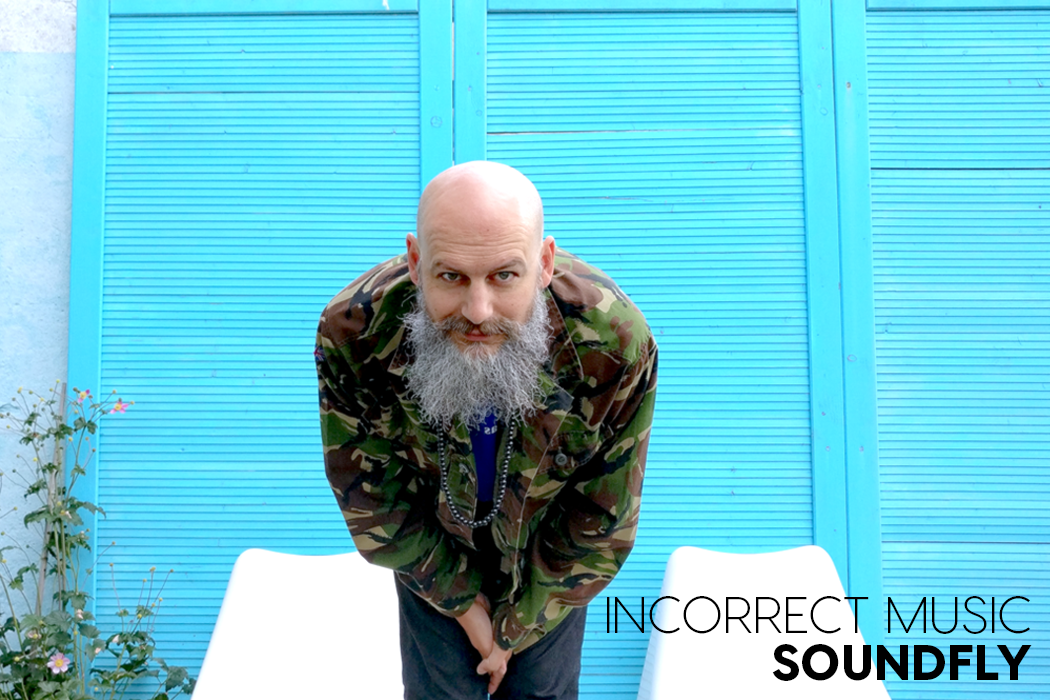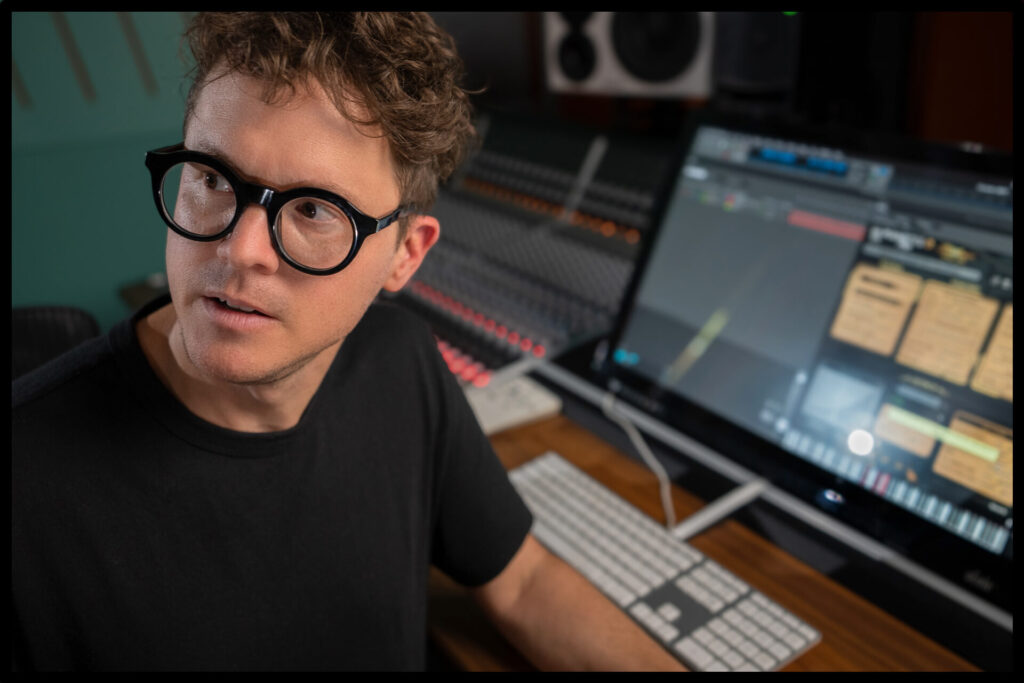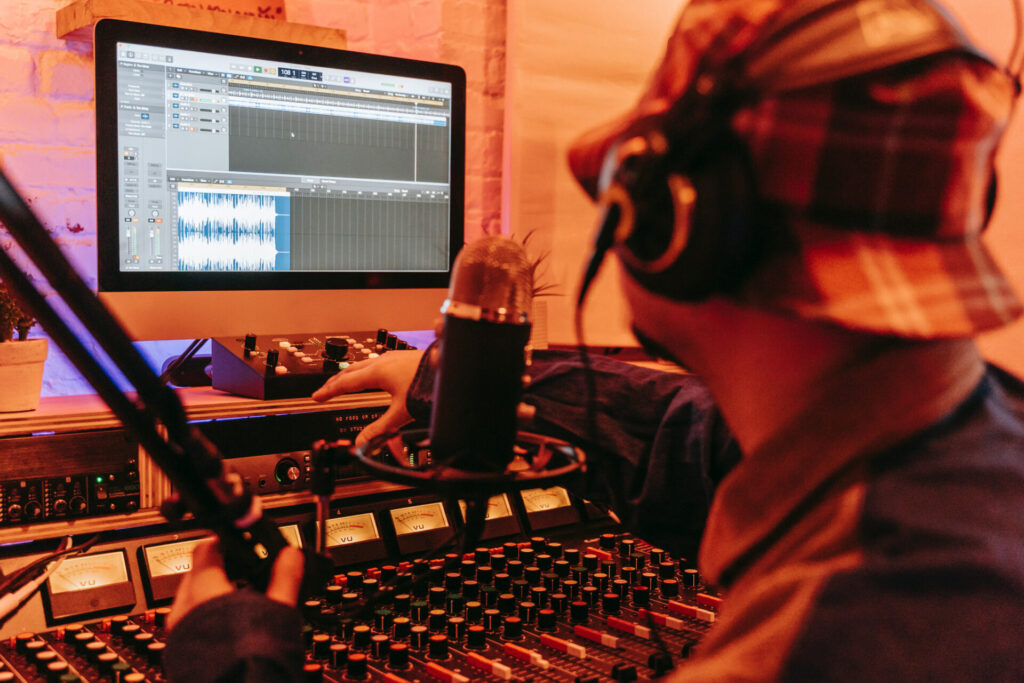Welcome back to Soundfly’s weekly interview series, Incorrect Music, curated by guitarist, singer, and composer Lora-Faye Åshuvud (of the band Arthur Moon). In this series, we present intimate conversations with artists who are striving to push the boundaries of their process and craft.
Nick Millevoi has been following the Dutch duo Dead Neanderthals ever since the first of their 26 “heavy jazz” albums dropped on Bandcamp in 2010. He eventually hopped in the van with the band for their first European tour, and, in the process, he got to know saxophonist Otto Kokke pretty closely. When Kokke released the debut album from his solo project, Veni Om, this August, Millevoi got to catch up with the composer and ask him some questions.
The release, Faith in the Light of Now, explores spiritual devotional music through a series of seven meditative tracks, each based around a central organ drone. “It’s a far cry from the aesthetics of Dead Neanderthals,” says Millevoi. “The warm and welcoming tracks contrast the aggressive nature of the duo, but the monolithic dynamics and all-encompassing sound environments are familiar to Kokke’s work.” As a secular newcomer to devotional music and minimalism, as he admits in his conversation with Millevoi, Kokke is coming from outside the genre. And this is precisely where the “incorrect” aspects of Veni Om’s music reside:
“All I can bring is something that’s me and my background… and a naïve sense of what this ‘genre’ is about.” – Otto Kokke
Veni Om’s Faith in the Light of Now is out now via SANAI Foundation.
– Lora-Faye Åshuvud
Interview by Nick Millevoi
Veni Om is aesthetically somewhat of a big departure from your work with Dead Neanderthals, but I still hear a strong connection between the two projects. To my ears, Dead Neanderthals is heavily influenced by late-period John Coltrane and Veni Om seems more influenced by Alice Coltrane. Am I on the right track?
Yeah, John and Alice. When you think about it, how cool is it that these two geniuses actually found each other! With DN, we have been doing things that lean towards drone and minimal music, but Veni Om is indeed different. I didn’t really plan any of this, but I was (and still am) listening to a lot of American minimalism from the ’60s and ’70s, like LaMonte Young and Terry Riley. Then, I got really absorbed by Alice Coltrane’s devotional tapes, and that kind of just clicked.
There’s a record by Tim Robertson on Aguirre Records called Outer Planetary Church Music that ties in there as well. I always kind of cringe at the cliché when some artsy type says, “I just had to get it out of me.” But it was something like that. I guess these influences inspired me so much I just felt I had to try and do something.
How did you decide to get started with Veni Om, and can you tell me about the composition process?
Haha… well, it’s all GarageBand. I play around with that a lot just testing ideas. So I loaded up an organ and some chimes and just made a couple of things. Just exploring nice intervals, which somehow always ended up being fourths and fifths. Because there are no cool, single-stringed instrument sounds in the basic version of GarageBand, I ended up using an erhu sample.
You’ve described Veni Om’s music as devotional. What is it devoted to?
Part of it is just that the genre categorization seemed to fit; the organ sounds very “churchy” to me. What I was working towards was a kind of meditative, internally focused feeling that I got from the music that influenced this — closing yourself off and just being. Not so much spiritual as “fitting with spirituality.” So, I guess it’s devoted to finding your inner peace. Or something. I’m much too secular to place this kind of devotion anywhere outside of myself. I jokingly call it “yoga music,” too…
Considering your influences, I still feel like I hear your voice in this music. What do you think you bring to this genre personally?
What I was thinking when I started all this was that, although drone music has become quite popular (in an underground sense), most of what I encountered was either the Sunn O)))-inspired harsher metal side of it or the more electronic dark ambient kind of stuff. I wanted to bring something more soft, warm, and human into the conversation. I don’t think many people are doing that at the moment.
As for the genre, I’m very conscious of the fact that I’m dabbling in something that I’m not too familiar with. I don’t really know much devotional music or minimalism and am still discovering a lot all the time. So I guess all I can bring is something that’s me, and my background, and a naïve sense of what this “genre” is about. I’m exploring and working much more from something that I think is cool, rather than towards a defined sound or genre. The genre is much closer to something like a road I’m traveling, not knowing where it leads. The view from this road is really fun!
Is there anything about this record that goes against your instincts with regards to playing and improvising or composing?
The whole thing! Doing something that someone might label “new age” is very much against my instincts. If you see how Veni Om is categorized on Bandcamp and follow that tag, a lot of that stuff really makes me cringe.
Do you plan on doing live performances with this project, and if so, how will that work?
Yes! As soon as what I was doing started to take shape, I realized that I wanted to do this live and as a solo act. Some of the songs on Faith in the Light of Now are not really suited for solo shows, so it’ll have a slight organ-centered, droney, meditative slant. Just chimes, some samples from my looper and, yes, that awesome vintage Yamaha YC organ that I stumbled upon and scooped up because that’s what Terry Riley used!
Looking to advance your skills and open up more opportunities in music? Explore Soundfly’s growing array of Mainstage courses that feature personal support and mentorship from experienced professionals in the field, such as Beat Making in Ableton Live, Orchestration for Strings, Unlocking the Emotional Power of Chords, and The New Songwriter’s Workshop. Sign up now for any course in advance of the November 1 start date and get $200 (40%) off with code EARLYBIRD40.





